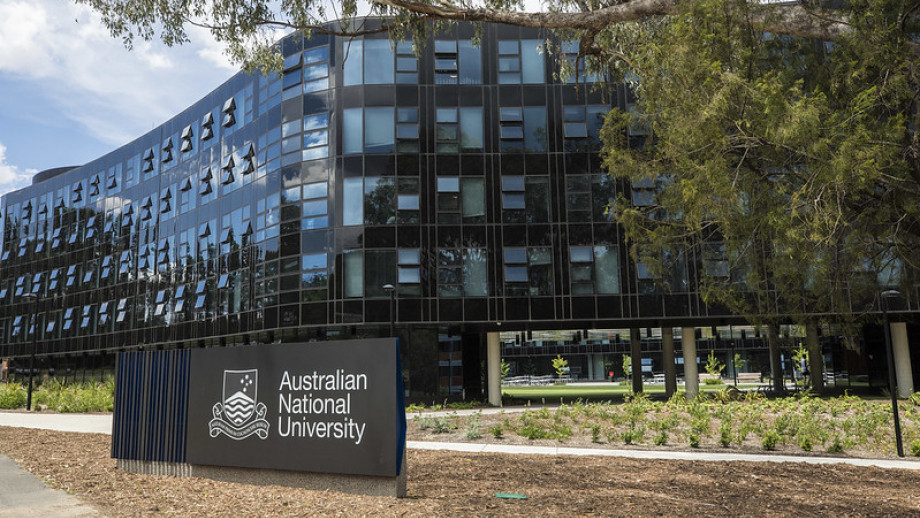

In this article, we will provide you with everything you need to know about which Law universities in Australia you can consider to study the pathway and entry requirements.
Ever wonder why Law exists in this world? Why are human beings bound to certains rules, and why are there consequences for those who don’t adhere to these rules set by mankind?
If you observe closely, you’ll notice that Law exists everywhere; from the social media that you’re scrolling, online or in-person purchasing, driving on the road and countless others that have various laws revolving around our daily lives.
How do we know if these rules apply to us? What kind of punishment would one get if he chose to disobey one of the rules? What is the proper way to hold someone accountable? These are among the questions that you’ll get answered by pursuing a Law degree.
What is Law?

Law can be defined as a set of rules that is established to regulate or set boundaries towards a community or citizens’ behavior. This is to ensure our rights are protected and justice is served in order to live in a peaceful society.
By studying Law degree, you’ll have the opportunity to develop a range of skills and explore many aspects of human life including business, economics, politics, the environment, human rights, international relations, and commerce. You will be exposed to numerous case studies and have in-depth learning of how law works in our life.
There are many areas of specialisation you can choose from doing a Law degree. Among the common specialisations include Criminal Law, Constitutional Law, Administrative Law, Succession Law, Contract Law, Family Law and many others. After pursuing your law degree, you may want to think about which division you are interested in.
Not only studying law requires a lot of reading and memorising, you will learn how to critically think and provide best possible solutions to any given case. From writing to communicating verbally, you will be taught the right way to make judgement and validate your point analytically, rationally and critically to defend your argument or give a solution that is appropriate to the case given to you.
Skills Needed to study Law

Being in the legal field can be both challenging and rewarding, you’ll have the opportunity to make the world a better place, given the right knowledge and skills cultivated. Here are the top skills required to study Law:
- Logical Reasoning
You must have good powers of logical reasoning in order to analyse and conclude every situation correctly. This is important to form a strong argument in the court. To become a lawyer, you must be able to provide possible conclusions from premises and demonstrate a relation between them in order to argue logically and convincingly in court.
- Research and Analysis
Research and analysis skills are important when compiling a case, providing legal advice, and drafting legal documents. Your research must be sufficiently detailed in order to enable you to put forward your argument to the judge convincingly and concisely.
- Problem-solving and sound-judgement
Being a lawyer requires you to have the ability to critically analyse a challenging situation. You should be able to fully utilise your problem-solving skills to provide the appropriate solutions for case given through marking out the best possible course of argument.
- Strong Communication Skills
Communication skill is crucial when it comes to being a lawyer. A lawyer must be able to speak confidently and clearly to ensure everyone in court understands the points delivered. How well the lawyer expresses their points and puts forward the case to the judge can influence whether they can win or lose the case.
General Entry Requirements for Law in Australia
i) Academic Entry Requirements
Academic Entry | Minimum Score |
STPM | GPA of 2.7 |
Matriculation | GPA of 3.17 |
A-Levels | Total of 7 |
UEC | Total of 25 with top 5 subjects |
IB Diploma | 24 |
Australian Matriculation (ATAR) | ATAR of 65 |
Canadian Pre-University (CPU) | 65% |
*NOTE : Different universities may have different entry requirements. For inquiries on specific requirements, contact us now!
ii) English Language Entry Requirements
Entry Level | Minimum Score |
IELTS | 7.5 |
TOEFL | 105 |
Pearson Test of English (PTE) | 76 |
*NOTE : Different universities may have different entry requirements. For inquiries on specific requirements, contact us now!
General Pathway to become a qualified Lawyer

To become a Lawyer in Australia you will need to go through multiple steps:
1. Complete a Bachelor of Law (LLB) or Juris Doctor (JD)
To become a practicing lawyer, you would need to undertake either a Bachelor of Law (LLB) or Juris Doctor (JD). LLB is suitable for students who do not already possess a degree whilst a JD is suitable for students who already have a degree in another discipline. Typically, both of these courses take 4-5 years to complete.
2. Complete a Practical Legal Training (PLT)
Law graduates who wish to become certified lawyers need to undergo Practical Legal Training otherwise known as the ‘Graduate Diploma of Legal Practice’ assessed by the Legal Admissions Board varying by each state or territory in Australia. This qualification focuses on practical skills needed to become a lawyer and can be attained within a minimum of 6 months. Another alternative option would be through the Legal Practice Experience which is an 80 day supervised legal practice with an experienced lawyer.
3. Admission to Legal Practice
Application to the Law Admissions Authority at the state or territories of choice to practice is then applied by law graduates within 5 years of graduation.
4. Apply for Practicing Certificate from the local Law Society
Final step of transition to becoming a practicing lawyer is to complete an 18 to 24 months of supervised practice before the application to the Law Society of the state for Practising Certificate.
Australia operates a system of Solicitors and Barristers. Once you have become a practising lawyer, you are able to decide if you want to remain as a Solicitor or move onto becoming a Barrister.
What can you do with a Law Degree?
Being a law graduate with qualifications like Certified Legal Practice (CLP) will open you doors to many job opportunities. Here are among the career prospects that you can explore in, but not limited to:
- Corporate Lawyer
- Advocate and Solicitor
- Judiciary
- In house counsel
- Paralegal
- Forensic Investigator
- Attorney-General’s Chambers
- Legal Writer & Editor
Top Universities in Australia to study Law based on Times Higher Education
#1 Australian National University (ANU)

Since 1946, ANU has taken the lead in expanding Australia’s knowledge of both its own culture and the wider world. The institution provides undergraduate and graduate students from all around Australia and the world with a broad range of degrees, including flexible double degrees, as well as the assistance of more than 3,000 academic and professional staff members.
A Bachelor of Laws (Honours) degree offers you a law degree that can lead to various professional opportunities in Australia and globally. The LLB programme focuses heavily on enhancing your research abilities through independent legal research projects. Completing the LLB (Hons) will earn you an honours degree, which can give you an edge when starting your career or pursuing further studies. It also fulfills the requirements for becoming a lawyer in Australia.
Programme name | Bachelor of Laws (Honours) |
Duration | 4 years |
Intake | February, July |
Indicative Fees (2024) | AU$192,132 |
For more information regarding the fees, program structure and entry requirements, contact us now for free consultation.
#2 University of Technology Sydney (UTS)

The University of Technology Sydney, abbreviated as UTS, is an acclaimed public higher education learning institution in Australia with history traced back to 1870. UTS is ranked among the top 100 of universities worldwide, marking their academic prominence and global impact.
The Bachelor of Laws at UTS is highly regarded for its comprehensive approach to legal education. It’s designed to not only teach students the basics of law but also to develop crucial ‘soft’ skills like problem-solving, analytical thinking, and effective communication (both verbal and written). These skills are essential for success in a legal career. During the programme, students will delve into the Australian legal system, gaining a solid grasp of its workings, alongside learning key common law principles. Graduates will meet the necessary academic standards to become practicing lawyers in New South Wales.
Programme name | Bachelor of Laws |
Duration | 4 years |
Intake | February, July |
Indicative Fees (2024) | AU$182,016 |
For more information regarding the fees, program structure and entry requirements, contact us now for free consultation.
#3 University of South Australia (UniSA)

The University of South Australia (UniSA) is a prominent institution located in Adelaide, South Australia. Renowned for its commitment to academic excellence and practical learning, UniSA offers a diverse range of programmes to students from around the world.
UniSA is known to be the top-ranked institution in South Australia for graduate careers in law. Aside from being accredited by the Legal Practitioners Education and Admission Council, the curriculum is shaped by world-class research in Law and covers the fundamental principles of the Australian legal system. Law students at UniSA have opportunity also experience with real-world legal practice through the student-run Legal Advice Clinic, which involves providing advice to clients under the supervision of a managing solicitor
Programme name | Bachelor of Laws (Honours) |
Duration | 4 years |
Intake | February, July |
Indicative Fees (2024) | AU$144,400 |
For more information regarding the fees, program structure and entry requirements, contact us now for free consultation.
#4 Griffith University

Griffith University is a leading higher education institution devoted to fostering remarkable graduates through exceptional research and excellent teaching. Griffith is consistently ranked among the top 2 percent of universities worldwide, holding core principles covering excellence, ethical behaviour, and engagement.
When you study law at Griffith, you’ll be part of a law school that is deeply committed to social justice. Here, you’ll learn from award-winning teachers and researchers who are not afraid to challenge the way things are done and are constantly creating new legal knowledge, models, and processes. Griffith University takes pride in being the top-ranked Queensland university for Law & Criminology according to the 2023 Shanghai Global Rankings of Academic Subjects. Throughout your studies, you’ll also build a solid understanding of various aspects of law and legal practice.
Programme name | Bachelor of Laws (Honours) |
|---|---|
Duration | 4 years |
Intake | March, July |
Indicative Fees (2024) | AU$142,000 |
For more information regarding the fees, program structure and entry requirements, contact us now for free consultation.
#5 Western Sydney University

The Western Sydney University was initiated in the year 1989 under the name the University of Western Sydney, is committed to being a higher education institution which is distinctively student-centred with life-enriching educational opportunities. Students will be entitled to student support and regular vetted curriculums.
Western Sydney University Bachelor of Laws programme (Non-Graduate Entry) sets you up to become an Australian lawyer. You’ll dive into hands-on problem-solving and real-life case studies, learning alongside others in person. Plus, you’ll tackle practical assessments that really sharpen your skills and knowledge. It’s all about preparing you for the real world of law practice.
Programme name | Bachelor of Laws (Non-graduate entry) |
Duration | March, July |
Intake | 4 Years |
Indicative Fees (2024) | AU$135,840 |
For more information regarding the fees, program structure and entry requirements, contact us now for free consultation.
Recommended Articles to Read
About The Author

Diyanah
Like a river that keeps flowing, like a tree that absorbs and gives back to the soil and air, we stay curious and learning.

